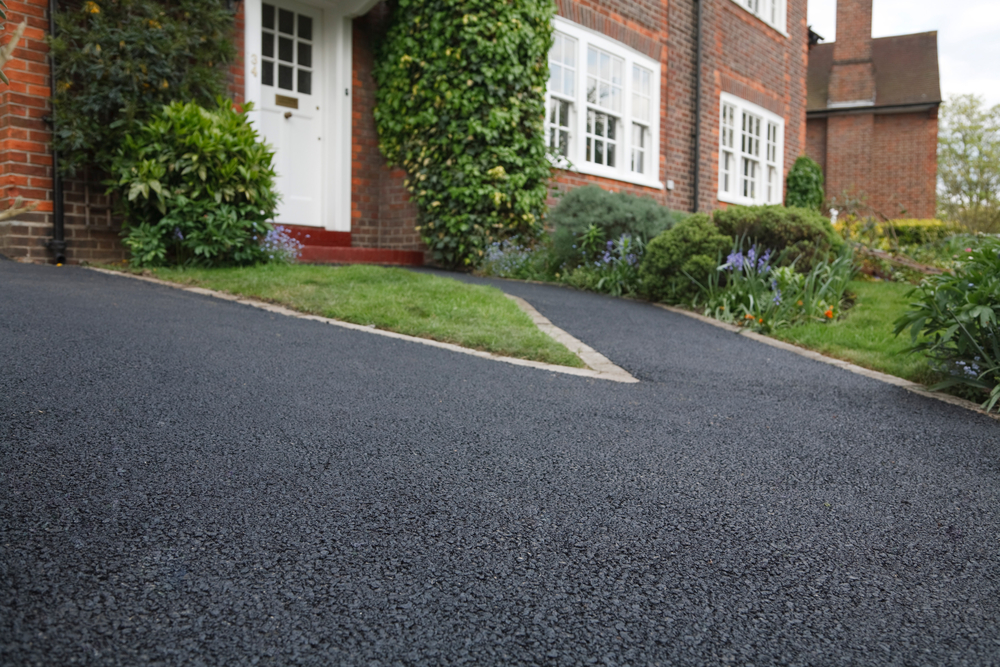Rejuvenate Angle Parking Lots: Asphalt Sealing Approaches Disclosed
Cold Mix Asphalt Vs. Hot Mix Asphalt: Which Is Right for You?

Make-up Differences
Cold mix and hot mix asphalts vary considerably in their structure, with unique qualities that affect their efficiency and applications. Cold mix asphalt is produced by emulsifying the asphalt binder with water and an emulsifying agent before mixing it with aggregate. This method enables the asphalt to be convenient at lower temperatures, making it suitable for short-term repair services and for use in colder climate condition. Warm mix asphalt, on the various other hand, is made at heats, usually in between 300-350 ° F, which helps to accomplish better compaction and an extra durable end product. The hot mix asphalt production procedure involves heating up the accumulation and asphalt binder separately before integrating them at the asphalt plant.
Furthermore, cold mix asphalt tends to be less dense and more flexible than warm mix asphalt. This versatility makes it far better suited for locations with greater levels of activity, such as driveways or roads with heavy website traffic. In comparison, hot mix asphalt is known for its high longevity and resistance to rutting and cracking, making it a preferred selection for highways and high-traffic roads where long life is important.
Installment Process Variances
The process of installing cool mix and hot mix asphalt exhibits notable variations in their procedures and needs. In contrast, hot mix asphalt demands a much more intricate installation process. Due to the home heating requirements, hot mix asphalt installations are commonly lugged out by specialists with customized equipment, ensuring a more irreversible and structurally sound result.
Toughness and Long Life Elements
When considering asphalt alternatives, durability and longevity are crucial aspects to evaluate for long-term sidewalk efficiency. Warm mix asphalt (HMA) is understood for its extraordinary longevity and durability.
In terms of long life, HMA commonly outmatches CMA due to its premium toughness and resistance residential or commercial properties. HMA sidewalks have a longer life span, calling for much less frequent fixings and maintenance, which can equate to cost savings over time. Furthermore, HMA pavements are a lot more quickly adjustable to fulfill specific project needs, further boosting their sturdiness.
Price Factors To Consider
Thinking about the economic ramifications is a critical facet when evaluating the selection between warm mix asphalt (HMA) and cool mix asphalt (CMA) for sidewalk tasks. While the initial price of warm mix asphalt is generally higher than that of cold mix asphalt, HMA often offers a much more affordable option in the long run due to its remarkable longevity and long life.
In addition to material expenses, it's vital to consider the costs associated with setup and upkeep when comparing HMA and CMA. Ultimately, the choice between HMA and CMA ought to take into account not simply the preliminary expense yet likewise the lasting financial effects to figure out the most economical choice for the certain sidewalk task.
Environmental Influence Comparison
Contrast of the ecological effects in between warm mix asphalt (HMA) and cool mix asphalt (CMA) discloses distinctive differences in sustainability methods. HMA production needs high temperatures, bring about cold mix asphalt boosted energy additional reading consumption and greenhouse gas exhausts. The process additionally releases unpredictable organic compounds (VOCs) and hazardous air pollutants (HAPs) right into the atmosphere. On the other hand, CMA is generated and used at lower temperature levels, decreasing power usage and emissions considerably. The lower production temperatures of CMA lead to decreased fuel consumption and reduced degrees of CO2 discharges, making it an extra ecologically pleasant choice.
Moreover, making use of CMA frequently entails reusing existing asphalt sidewalk, promoting resource preservation and reducing the quantity of waste sent out to land fills. This recycling facet even more boosts the sustainability of CMA contrasted to HMA. Overall, when thinking about the ecological effect, CMA arises as a more eco lasting option as a result of its reduced power needs, minimized discharges, and the capacity for recycling existing products. By going with CMA over HMA, road building jobs can add favorably to environmental conservation initiatives.
Verdict
To conclude, the selection in between chilly mix asphalt Read Full Report (CMA) and warm mix asphalt (HMA) relies on various elements such as composition, installation procedure, resilience, long life, price, and ecological influence. cold mix asphalt. While CMA uses a affordable and quick service for minor repairs, HMA guarantees premium toughness and longevity for heavy web traffic locations. Take into consideration these aspects very carefully to determine which kind of asphalt is the right option for your paving requires

Taking into consideration the financial implications is a critical element when evaluating the choice between warm mix asphalt (HMA) and cool mix asphalt (CMA) for sidewalk projects. While the preliminary cost of hot mix asphalt is usually higher than that of cool mix asphalt, HMA commonly offers an extra affordable remedy in the lengthy run due to its premium toughness and longevity. asphalt repair.Contrast of the ecological effects between warm mix asphalt (HMA) and cold mix asphalt (CMA) exposes unique distinctions in sustainability techniques.In conclusion, the choice between cool mix asphalt (CMA) and warm mix asphalt (HMA) depends on different variables such as composition, setup procedure, longevity, long life, price, and ecological effect